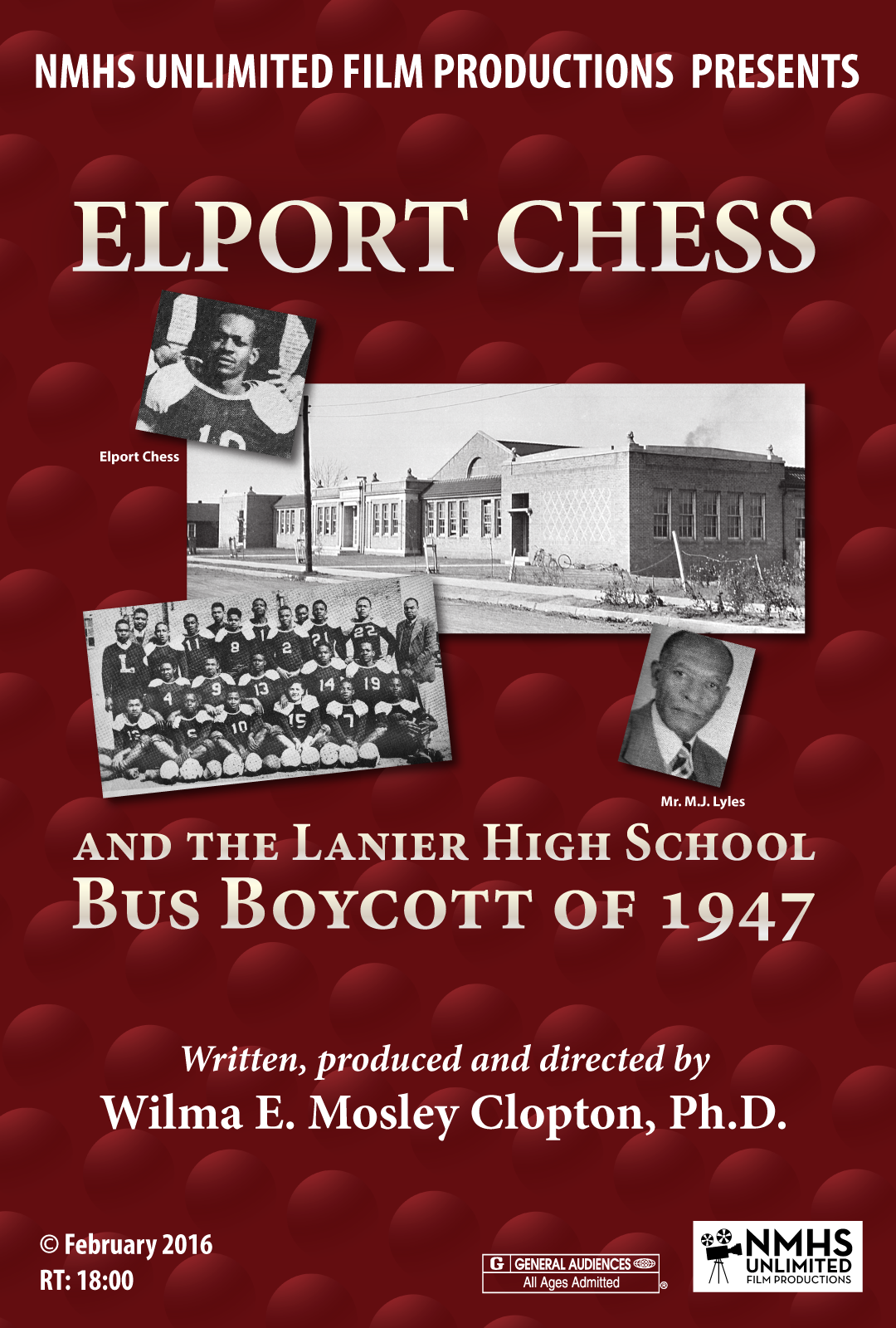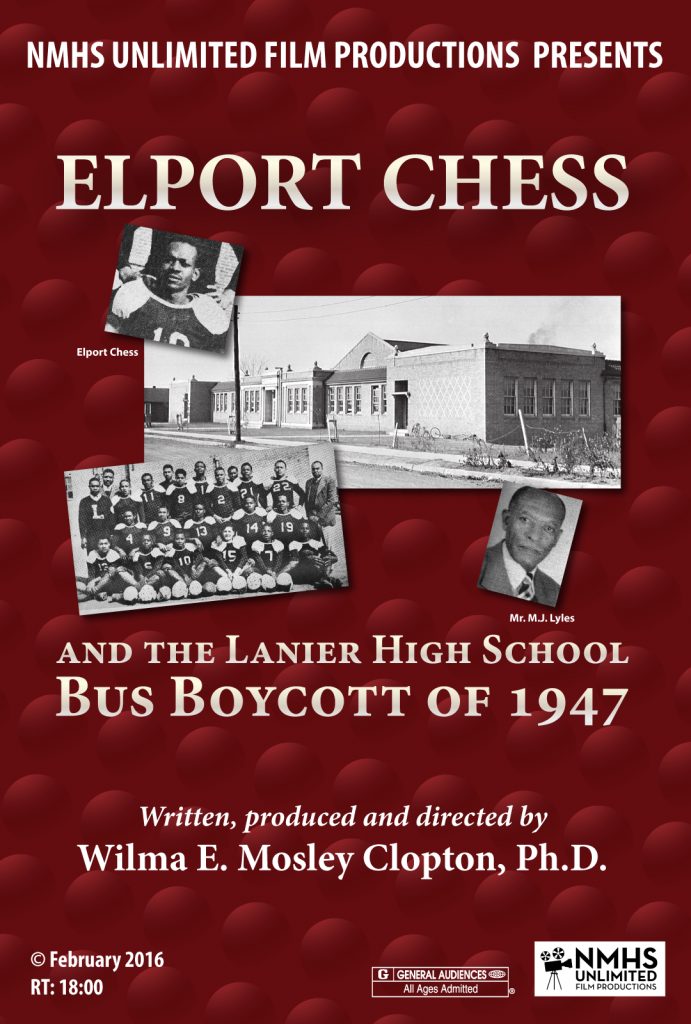
By Janice K. Neal-Vincent
Contributing Writer
 Listed among films made by Mississippi’s women filmmakers is Elport Chess and the Lanier High School Bus Boycott of 1947.
Listed among films made by Mississippi’s women filmmakers is Elport Chess and the Lanier High School Bus Boycott of 1947.
Wilma Emma Mosley Clopton, Ph.D., the movie’s writer/producer/director, calls attention to youth in their restless search of truth, justice, and equality. Overt signs of the culture boxes them into confinement when it comes to their educational pursuits. They are only allowed to ride city bus number six, though there are yellow buses that white students ride with freedom to sit where they desire. On bus six are two vacant seats up front designated for white passengers who may or may not board the bus.
Elport Chess, returning World War II veteran, continues his educational pursuit at Lanier. Cognizant of the separate seating areas, he decides to not continue to the back of the bus but rather, to sit in one of the vacant seats up front. The white bus driver, Strong, continues downtown where he reports the incident to police.
Chess’ arrest alarms students who in turn share their experience with their teacher, Mr. Lyles. who walks downtown and escorts Chess back to school. Chess’ bravery causes students to engage in a bus strike. When they learn that Strong’s boss did not keep his word to fire him, they went on another strike. It was this second strike that compelled city bus management to come before the students and announce that Strong would no longer work for the company.
These strikes draw viewers into the reality of what happens when collective voices speak. Then, too, they motivate youth to channel their anger in positive directions when it comes to questioning authority. The incidents address perseverance by compelling one to seek to collaborate, rather than settling into a compromising disposition.
Clopton brings familiar voices to speak. Former Jackson Public Schools Superintendent Cedric Gray gives the historical narration of the Mississippi educational system and racial inequities. Former classmates of Chess recall their experiences and questions regarding how they were deprived of amenities that were granted to white students. Chess wife (Earnestine) and son (Alexander) provide recollections handed down about the incident from observers.
Charlie Durr, president of the Student Council, suggests a boycott that, when instituted, brings about change. To hear and see the faces of those students now tell their stories offers hope to youth who feel that they are pinned against a wall when it comes to instructions from the older populace.
It further shows admiration to those across the course of time who have not forgotten what it takes to bridge as opposed to divide. These elements link dignity with deference to what I consider the profoundest sense to soul search truth and harmony. Flowing sounds of triumph prevail throughout the film. Youth rising to the moment of revelation which sets forth the cry of justice. Until such time, as the music builds to greater heights, they know there is no need to cease and desist.
Rightfully so, authoritative figures such as Lyles, though striving to maintain his job, knows that he must demonstrate what it means to seek the truth as he skillfully instructs youth by his own actions in confronting a system that set out to hold them in “their place” long before they were born.
Wilma Mosley Clopton’s “Elport Chess and the Lanier High School Bus Boycott of 1947” is a must see film April 8 at 1 p.m. during the annual Crossroads Film Festival April 6-9.
For screening location, visit crossroadsfilmfiestival.com.

Be the first to comment